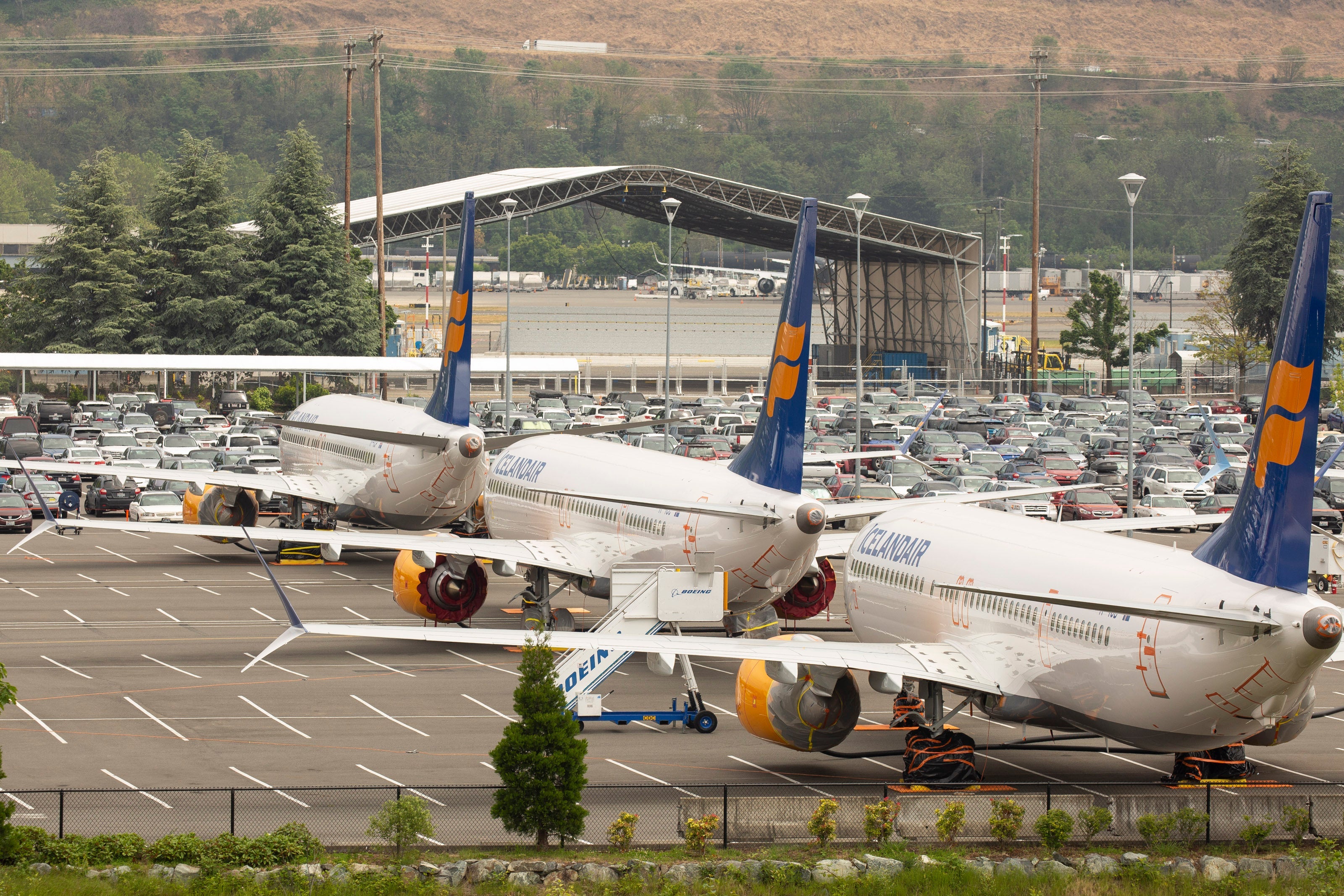The Boeing-Embraer marriage is off, and it looks like a bad split
Boeing has called off its plan to buy the majority of Embraer's commercial aircraft division, a deal that would have strengthened its position in the smaller jet market adding the E-Jet-E2 to its portfolio.
Boeing and Embraer were unable to reach an agreement on "unsatisfied [master transaction agreement] conditions" and further negotiations would not resolve the issues, Chicago-based Boeing said on April 25.
However, in response, Embraer said Boeing "wrongfully terminated" the agreement, in its own statement on April 25. The Brazilian planemaker claimed that Boeing's move stemmed from "its own financial condition and 737 MAX" grounding.
Sign up for the free daily TPG newsletter for more airline news!
Industry observers appear to agree with Embraer's view that Boeing canceled the deal due to the collapse in aircraft demand amid the coronavirus pandemic, reported The Seattle Times.
The Boeing-Embraer tie up, while unveiled in 2018, stems from the U.S. planemaker's concerns with Bombardier. In 2017, Boeing filed a trade complaint with U.S. authorities over Bombardier's sale of at least 75 CS100s -- now the A220-100 -- to Delta Air Lines claiming "damages" from Canadian subsidies to the aircraft program. That complaint, and the threat of possible tariffs, prompted Bombardier to sell the CSeries to Airbus and Boeing to seek a partnership with Embraer.
Boeing was to take control of 80% of Embraer's commercial aircraft division, which is focused on producing and selling the E2. A separate joint venture on Embraer's KC-390, a military transport jet, was also planned.
Related: Brazil Approves Boeing's $4.2 Billion Acquisition of Embraer

Apart from regulatory hurdles, progress on the Boeing-Embraer deal appeared to be moving forward even after the 737 MAX grounding in March 2019. The grounding hit Boeing hard prompting its first annual loss since 1997.

The U.S. planemaker has focused resources on getting the MAX, the cash cow of its commercial jet business, back in the air since the grounding.
During its 2019 earnings presentation, Boeing executives mentioned the MAX 39 times and the Embraer deal just once, according to Seeking Alpha.
A legal dispute between Boeing and Embraer appears set to occur next. The Brazilian planemaker said in its statement that it will seek "damages" from Boeing for canceling the deal.
However, the damage to Embraer could be lasting. The planemaker has landed few large new orders for the E2 in the past year, save KLM's commitment for up to 35 E195-E2 jets that it finalized last November. Embraer has no orders for the re-engined E-Jet from U.S. carriers to date, whereas Airbus has sold the comparably sized A220 to Delta, JetBlue Airways and David Neeleman's start-up Breeze Airways.
Related: 737 MAX woes send Boeing to first annual loss since 1997
TPG featured card
at Capital One's secure site
Terms & restrictions apply. See rates & fees.
| 5X miles | Earn 5X miles on hotels, vacation rentals and rental cars booked through Capital One Travel |
| 2X miles | Earn unlimited 2X miles on every purchase, every day |
Pros
- Stellar welcome offer of 75,000 miles after spending $4,000 on purchases in the first three months from account opening. Plus, a $250 Capital One Travel credit to use in your first cardholder year upon account opening.
- You'll earn 2 miles per dollar on every purchase, which means you won't have to worry about memorizing bonus categories
- Rewards are versatile and can be redeemed for a statement credit or transferred to Capital One’s transfer partners
Cons
- Highest bonus-earning categories only on travel booked via Capital One Travel
- LIMITED-TIME OFFER: Enjoy $250 to use on Capital One Travel in your first cardholder year, plus earn 75,000 bonus miles once you spend $4,000 on purchases within the first 3 months from account opening - that’s equal to $1,000 in travel
- Earn unlimited 2X miles on every purchase, every day
- Earn 5X miles on hotels, vacation rentals and rental cars booked through Capital One Travel
- Miles won't expire for the life of the account and there's no limit to how many you can earn
- Receive up to a $120 credit for Global Entry or TSA PreCheck®
- Use your miles to get reimbursed for any travel purchase—or redeem by booking a trip through Capital One Travel
- Enjoy a $50 experience credit and other premium benefits with every hotel and vacation rental booked from the Lifestyle Collection
- Transfer your miles to your choice of 15+ travel loyalty programs
- Top rated mobile app


